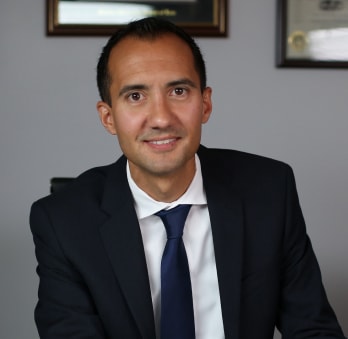
Anybody who faces criminal charges should know about conditional release, but what does conditional release mean? What is a conditional release from prison?
In the context of criminal law, conditional release can refer to two situations. First, criminal release can refer to a situation where someone faces a criminal accusation and is arrested but, upon arraignment, is released from incarceration during the pre-trial period.
Second, conditional release refers to an extended period of supervision that people charged with certain crimes are subject to after they serve their jail or prison time.
In both situations, the release of someone from incarceration hinges on certain conditions. The conditions differ to some degree. However, in both situations, the conditions for release are typically similar.
The general condition for someone to maintain their conditional release is to stay out of trouble. If you are out on conditional release, further criminal charges will almost certainly violate your release conditions and lead to further incarceration.
Pretrial Conditional Release
The Minnesota conditional release law most relevant for pretrial conditional release is in the Minnesota Rules of Criminal Procedure.
According to Rule 6.02, a judge should release anyone appearing before a criminal court at an arraignment from their incarceration, without bail, pending their criminal trial.
The rule goes on to state that this release should happen unless the release will endanger public safety or there is a reasonable expectation that the defendant will not appear at their trial.
When Pretrial Conditional Release Is Possible
If a judge determines that the pretrial release of a defendant will endanger public safety or that there is a risk that they will not appear in court, the Minnesota conditional release statute provides instructions on what to do to mitigate those risks.
The instructions say that a judge can require some combination of four things to mitigate the risk of flight or the danger to public safety:
- First, the judge can impose travel, residence, or association restrictions;
- Second, the judge can place the defendant under the supervision of another person or organization if they agree to such supervision;
- Third, the judge can securitize the defendant’s appearance in court with a bail bond or other security; or
- Finally, the judge can impose other necessary conditions to ensure that the defendant appears in court.
Judges have discretion as to which of these mitigating factors to employ in a given case. Prosecutors can argue for more stringent mitigating factors or argue against pretrial conditional release entirely. Thus, the help of a skilled and experienced criminal defense attorney is essential in the fight for pretrial conditional release.
Conditions for Pretrial Release
The conditions one has to follow to maintain their pretrial conditional release are relatively simple. On top of the two basic conditions of not committing crimes and appearing at a scheduled court date, the conditions are whatever the judge imposes.
A combination of anything on the aforementioned list is possible, which includes “any other necessary conditions.” Other conditions may include things like staying within the state or not associating with certain people.
The state can revoke a defendant’s pretrial conditional release if they fail to abide by conditions of their release.
Conditional Release From Prison
Conditional release from prison differs entirely from pretrial conditional release. Instead of a privilege, conditional release from prison is a burden.
It is an extra term of imposed supervision the court imposes in addition to one’s prison sentence. During the conditional release period, the Minnesota Department of Corrections continues to supervise those convicted of a specific crime.
Conditions for Conditional Release From Prison
There are quite a few different Minnesota conditional release statutes relevant to conditional release from prison. Each of the statutes corresponds with a specific crime or crimes.
The conditions for a defendant’s conditional release from incarceration differ depending on the crime that the defendant is convicted of and reflect that crime’s specific societal harms and risks.
Some of the criminal charges subject to conditional release from prison include:
- First degree (felony) driving while impaired;
- Predatory offense registration violation committed by certain sexual offenders;
- Assault in the fourth degree against secure treatment facility personnel;
- First through fourth degree criminal sexual conduct and criminal sexual predatory conduct; and
- Possession of pornographic work involving minors.
Each of these crimes comes with various potential conditions for release. For example, a condition for someone convicted of possession of pornographic work involving minors will likely include no contact with minors or only supervised visits with their children.
Alternatively, someone convicted of first-degree-felony driving while impaired may have their license suspended for a few years or be required to use an ignition interlock device.
The conditions for one’s conditional release from prison will always reflect the specific crime that they are convicted of.
If You Need Help with Conditional Release
Whether you need pre-trial assistance or post-conviction legal advice on conditional release in Minnesota, your best course of action is enlisting the help of an experienced Minnesota criminal defense attorney.
Our team at Arechigo & Stokka has over twenty years of experience fighting for the rights of Minnesotans caught in the net of the criminal justice system.
You have a right to a fair trial. Let us help ensure that the state respects that right. Contact Arechigo & Stokka today!



